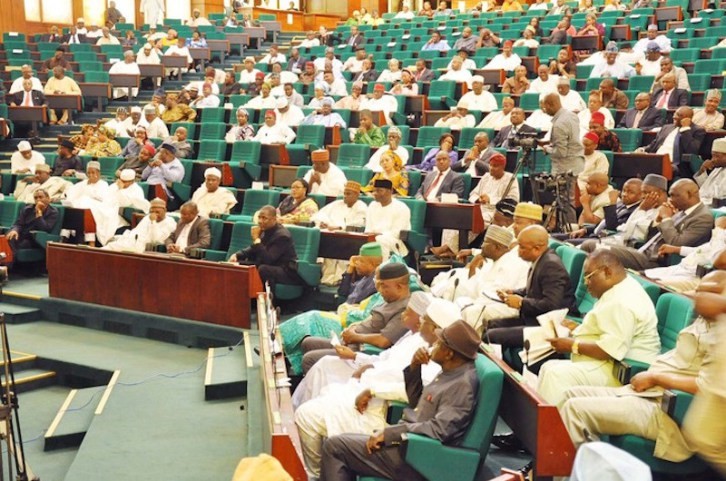The National Assembly Wednesday passed a N9,120, 334, 977, 225, 2018 Appropriation Bill, an increase of N508 billion over the N8.612 trillion proposed estimated expenditure presented to it by President Muhammadu Buhari.
The lawmakers increased oil price benchmark from $45 per barrel to N51, in view of the current reality in the local crude oil market. But oil production level was retained at 2.3million barrels per day, and exchange rate at N305/$1, as it was proposed by the Executive.
According to the Senate Appropriation Committee Chairman, Danjuma Goje the N508 billion increase in the budget figure would be funded with the increased revenue expected from the raised oil price benchmark. He said the increased budget was done in collaboration with the Executive, and reflected in the sectoral allocations to government’s Ministries, Departments and Agencies.
The budget was passed six months and nine days after the President presented it to the joint session of the National Assembly.
There is no provision for petrol subsidy payments in the 2018 budget, despite the fact that the Nigerian National Petroleum Corporation (NNPC) claims billions of Naira as under recovery. However, the federal government continues to claim that subsidy has been abolished.
The budget breakdown shows that the federal government will spend N2.2trn to service debts, with N1.75trn to be spent on domestic debts, and N254.07bn on foreign debt service, while the sum of N190bn is appropriated as “sinking fund for retiring maturing debs.”
Recurrent expenditure is captured as N3.515trn, development fund for capital expenditure is N2.869trn, while provision for statutory transfers is N530.421bn.
For sectoral allocations, the Ministry of Power, Works and Housing got the highest vote of N714.6bn for recurrent and capital expenditure. Out of the N714.6bn, N682.9bn is earmarked for capital projects, leaving the balance of N31.7bn for recurrent spending.
The Ministry of Interior got the second highest vote with a combined capital and recurrent vote of N576bn, the Ministry of Defence, followed closely with N575.6bn. This provision is aside from other votes for the military like the N78bn for the ‘Operation Lafiya Dole’.
The Ministry of Education followed with N541.2bn for both capital and recurrent expenditure, while the National Assembly got a vote of N139.5bn.
Meanwhile, the lawmakers, who had declared the subsidy on petrol being funded by the NNPC as illegal, asked the president to forward a supplementary budget to include the subsidy funds as well as that of the aircraft recently purchased from the US.
The President of the Senate, Bukola Saraki, emphasized the need for the executive to present a supplementary budget that would capture areas not covered in the passed budget.
“In the area that we could not address, which is the issue of fuel subsidy, I want to make an appeal again that the executive needs to look into this for the interest of transparency, where an expenditure close to over N1trn must be captured in the budget. And when the supplementary (budget) comes, the executive should do something about this area. It is an important issue we must address.
“In doing that, we must appreciate now that the crude oil price is close to $80 (per barrel) and a lot of Nigerians are expecting to see our Excess Crude Account to be on the rise. But if money is being used for subsidy, at the end of the day, we will have it difficult to explain. That is why it is important that we capture this subsidy into the budget,” he said.






























